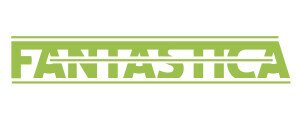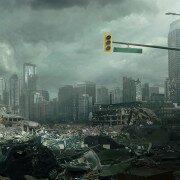What We’re Reading: The Dispossessed
Fantastica crew member Mark reflects on reading Ursula Le Guin’s 1975 ‘The Dispossessed’, a science fiction classic examining capitalism, anarchism and most things in-between.
MR: The first Ursula Le Guin book I picked up was A Wizard of Earthsea. I was 10 at the time and obsessed with fantasy.
I would have read through to the end: dropping books that didn’t grab me in the first 50 pages was a habit I took on much later. But I do remember not enjoying it and not going on to the other books in The Earthsea Cycle.
The problem was probably that it was completely unlike the other fantasy books I was reading. Sure, it had wizards and dragons, but the book is a far-cry from Tolkien’s The Hobbit or Feists’ Magician – both staples of my childhood.
Three decades later I now reread the Earthsea books every few years, while the simpler fantasy adventures I devoured as a child have made their way to second hand dustbins.
Le Guin is a writer that connects strongly with my adult self. In an age where the world seems oversaturated with meaningless pulp, her words often inspire me to keep going.
As she said in her acceptance speech for the 2014 National Book Award: ‘Hard times are coming, when we’ll be wanting the voices of writers who can see alternatives to how we live now, can see through our fear-stricken society and its obsessive technologies to other ways of being, and even imagine real grounds for hope. We’ll need writers who can remember freedom – poets, visionaries – realists of a larger reality.’
I’ve also happily discovered her science fiction work, most recently The Dispossessed. The book is part of The Hainish Cycle, set in a future where a benevolent humanoid race achieve interstellar travel and begin attempting to connect other planets into a League of All Worlds.
She uses this premise to examine ideas and concepts that we take for granted. In The Left Hand of Darkness for example, published in 1969, a male envoy from the Hainish travels to a world where everyone is ambisexual, spending most of the time asexual and then, on a roughly monthly basis, adopts either male or female sexual attributes depending on individual context at the time.
 In The Dispossessed the main character is an academic from an anarchist society, who travels to a property-based world full of harsh divisions in wealth, race and gender. Le Guin uses the contrast to examine both how a society without possessions would work and also get under the skin of the capitalist world we live in.
In The Dispossessed the main character is an academic from an anarchist society, who travels to a property-based world full of harsh divisions in wealth, race and gender. Le Guin uses the contrast to examine both how a society without possessions would work and also get under the skin of the capitalist world we live in.
Hearing the premise, it would be easy to dismiss The Dispossessed as high concept, but by centring the perspective so closely on the main character Shevek, Le Guin is able to examine how the different systems play out on an individual level.
Shevek is at odds with both worlds he traverses. The contrast with Urras, which he is sent to, is obvious. Shevek enters a wealth-based highly patriarchal society and approaches it as someone who has never owned anything, coming from a world where gender is essentially just a biological marker.
The wealth-based world of Urras is itself divided into several states, which are structured in ways which echo the way are world is, largely drawing on what appear to be her observations of the United States and Soviet Union.
In his home world of Annares, Shevek comes into conflict with the system and hierarchies that have developed around a system that is not supposed to have hierarchies. His approach to conflict is almost passive: ‘His gentleness was uncompromising; because he would not compete for dominance he was indomitable.’
As with much of Le Guin’s work, there is no central moral. The novel itself is an examination of ideas and it’s left to the reader to take them where we will. Forty years after its publication, the themes, ideas and concepts Le Guin explores in The Dispossessed remain as relevant as ever.
A representative of our future Earth makes an appearance towards the end, lamenting how we turned our planet into a barren desert. ‘You Odonians chose a desert, we Terrans made a desert…’ the emissary of Earth says to Shevek when he escapes the infighting on Urras for a moment.
Le Guin’s examinations of politics and society through fiction over the years seem to have firmed her own views. In 2014 she used her National Book Award speech to label online bookselling giant Amazon as a ‘profiteer’.
‘We live in capitalism. Its power seems inescapable,’ she said, before moving on to challenge the rest of us: ‘So did the divine right of kings.’








